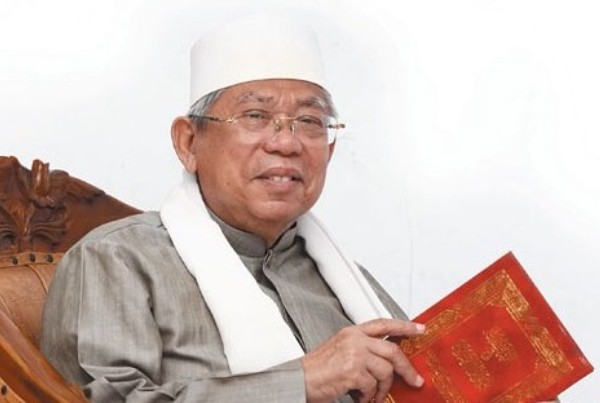KH Ma’ruf Amin, Father of Indonesia Syariah Banking System
by: Linda Gustiana*
KH Ma’ruf Amin is indeed known as one of the most influential scholars in Indonesia in giving birth to policies that are in accordance with the principles and teachings of the Islamic religion. So far, people have indeed focused on the figure of Ma’ruf Amin in his capacity as an ulama so that the public does not realize that Ma’ruf Amin is also an economist. KH Ma’ruf Amin is one of the figures who contributed to the birth of Islamic banks in Indonesia. It is no exaggeration if he is called the Father of Islamic Banking for his services.
Long before advancing as Cawapres accompanied President Jokowi, Ma’ruf Amin was actually already poor in the field of economics. He was a Graduate of the Ushuluddin Faculty of Ibnu Kholdun University, Jakarta in 1967. He also received the Honoris Causa Doctorate degree in the field of Sharia Economic Law from the Postgraduate UIN Syarif Hidayatullah Jakarta in 2012. As Professor of Islamic Economics, Ma’ruf Amin played an important role in the formation Islamic banking such as Bank Muammalat, Bank BNI Syariah, Bank Mega Syariah, Bank Mandiri Syariah, and others.
In his view, Ma’ruf Amin highlighted banking interest which was considered usury which later led to the idea of the Islamic economic sector. For his thoughts, the government issued several regulations such as the State Sharia Securities Act (2008) and the Sharia Banking Act (2008). Ma’ruf Amin also welcomed the development of Islamic economics as part of improving the national economy. Apart from sharia financial instruments, Ma’ruf Amin also developed other sharia economic sectors, for example in the sharia business sector and sharia tourism. In addition, Ma’ruf Amin highlighted a bottom-up economic approach. This means that the economic base is supported by the community (ummah), so that it is not monopolized by a handful of conglomerates. If this can be done, in Maufuf’s view, Indonesia can become a key player in developing the Islamic economy in the international world.
Mauf’s expertise in the field of Islamic economics is of course a positive value in itself. At present, sharia economy is a new economic flow that has the potential to drive global economic growth. This potential can be seen from two things. First, the increasing growth of the world’s Muslim population is estimated to reach 27.5 percent of the world’s total population by 2030. The concept of sharia economics is now growing rapidly in the international world. This development is evident in the increase in the volume of global halal products which in 2018 can reach US $ 3.5 trillion (Rp. 51 thousand trillion) and are expected to continue to grow to US $ 6.3 trillion (Rp. 91 thousand trillion) in 2021.
In addition, Islamic economics is not an exclusive concept for Muslims only, but an inclusive concept that actively involves the entire community in the economy. This triggered various countries in the world to compete to take advantage of existing opportunities and become a major player in the global halal industry. This phenomenon does not only occur in countries with a majority Muslim population, but also in other countries such as Britain, Japan, China, South Korea and Thailand.
Indonesia itself has great potential as a key player in the global economy.
Until 2019, Indonesia is still the fourth largest importer of halal industrial food products in the world, and is a market for tourism products, medicine, halal cosmetics and global sharia fashion. If it still relies on imports, it will widen the current account deficit and reduce the balance of payments position. Looking at the data above, Islamic economics has a bright prospect going forward. Of course this requires the figure of Ma’ruf Amin as an expert in the field. His expertise will have an impact on the progress of the national economy. (*)
*) Economics Student at Syarif Hidayatullah State Islamic University
